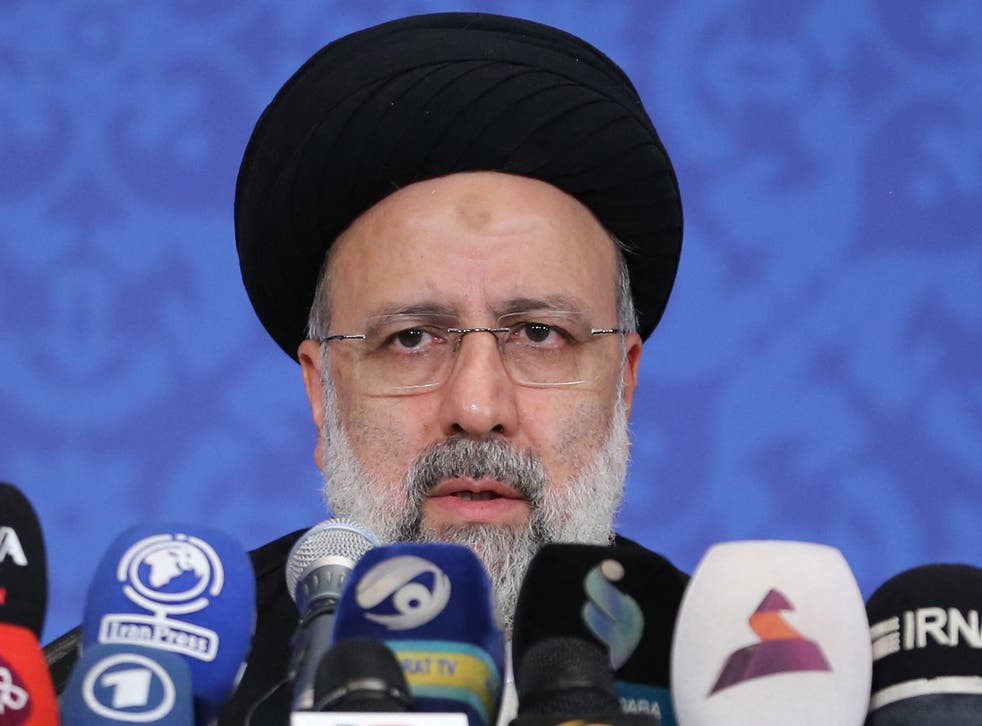As history so often has it—the hardliners got their way.
The presidential ascent of Ebrahim Raisi, a baby boomer alumnus of the Iranian Revolution, sequestered fanatics on both sides of the debate to their respective corners. That is, following Iran’s presidential election, the conclusions of the faithful were clear. To its adherents, Persia’s Islamist revolution is, indeed, alive and well. And to outside devotees of regime change, modern Iran is, indeed, run by unbowed revisionists of the modern order.
Elliott Abrams, the neoconservative Reaganite last seen in Mike Pompeo’s State Department, told Jewish Insider (which Barack Obama, apparently reluctantly, also granted an interview recently) that the course on Iran “should now be the policy Ronald Reagan outlined toward the Soviet Union: call for, and work quietly for, its end.” He reiterated such comments this week to Fox News.
In his first press conference, not missing a beat, Tehran’s new top dog swiftly fed his enemies the sword. He would not meet with President Joe Biden, incoming President Raisi said this week. The new chief is to be installed on August 3. And what has he to say of his nation’s ballistic missiles program? “Non-negotiable.” It was manna from heaven for the regime’s hardliners—as it was for those who would scuttle any deal with the regime.
But between the lines are the true stakes of international negotiation, not simple theater. And the details, this round, convey a reality apart.
First, a presidential parlay is not necessary for a new deal with Iran—as is sought by progressives and some conservative foreign policy restrainers. Biden’s Democratic predecessor, Obama, did not meet with Raisi’s predecessor, Hassan Rouhani. And yet, a deal was hatched. Though the duo exchanged a phone call in 2013, rumors of a face-to-face between the heads of government of two states that don’t have formalized relations were just that: internet hoax.
Second, it remains plausible that the U.S. and Iran’s Islamic Republic will reach, at least, some preliminary arrangement before Raisi is ushered into power in August. Perhaps attempting to meme this into existence, Iranian Foreign Minister Javid Zarif said he expected such a mid-summer deal, as reported by the state-aligned Tehran Times.
And despite picking up the Raisi remarks as evidence of bad faith, stalwarts of the status quo on Iran clearly fear a weak hand. As published in the Wall Street Journal on Tuesday: “‘Phase Two’ Iran Talks Go Kaput” read the headline, only to conclude, that Biden “seems bent on repeating the 2015 blunder.”
Indeed, ghosts of the old debate—that is, over the 2015 Joint Comprehensive Plan of Action later nullified by Donald Trump—stalk this conversation.
Take Mark Dubowitz, chief executive officer of the Iran hawk Foundation for the Defense Democracies (FDD). He is someone who had been initially, publicly supportive of the early Biden team namely, the selections of Antony Blinken as secretary of State and Jake Sullivan as national security advisor. Apparently, he feels he’s lost considerable ground, as he recently mused that Biden would be so disrespectful as to sign a new accord with Tehran on Shabbat.
A chief aide, Richard Goldberg, recently debated Trita Parsi of Quincy Institute (QI) on C-SPAN’s “Washington Journal” ahead of the Iranian vote. Parsi was previously the founder of the National Iranian American Council, and bugbear of those so committed to regime change. The FDD executive told C-SPAN that the reality of a future under Raisi, whose main rivals were disqualified from the ballot, exposed a “selection, not an election” and “the sham of it all.”
Said Goldberg: this is a “modern-day Torquemada,” the Castillian inquisitor, referencing Raisi’s very real involvement in state violence. Goldberg warned that if Biden signs a deal, which he fears he will, such an act “will legitimize a mass murderer.” Goldberg opined the triumph of Raisi dispensed with the fiction of “so-called moderates” in the present Iranian regime.
“I think there is a big difference, and they do absolutely matter,” Parsi countered. He dissented from the contention that the outgoing Rouhani administration was a mere gaggle of uncompromising Islamists. Though both Goldberg and Parsi agree that the selection of Raisi is worrying, advocates of a deal, like Parsi, argue that coronation of Iranian ultraconservatives is evidence of the failure of a “maximum pressure” approach as championed by Abrams and the former Trump administration.
Goldberg’s own pedigree is evidence of the confusions of wordplay.
Before serving on the National Security Council, principally under John Bolton, Goldberg was chief of staff to then-Illinois Governor Bruce Rauner, generally considered a moderate. While Rauner’s politics might be socially moderate, if economically run-of-the-mill, the employ of figures like Goldberg is clearly further evidence “moderate” is squarely in the eye of the beholder. The prospects of Maryland Governor Larry Hogan is, likewise, a neoconservative cause célèbre.
And clearly, the architects of the Iraq War were many things, but they were hardly moderate.
For such comparisons often dog Iran hawks, as underlined Tuesday by Bolton in the WSJ. Clearly irked by the example, Bolton references uncoverings by the Mossad: “Mossad’s haul deals a mortal blow to any fancy that Tehran ever came clean on nuclear issues. The archive, let alone what remains classified or still in Iran, also destroys the ‘What about Iraq?’ riposte when discussing Iran’s nuclear-weapons program.”

